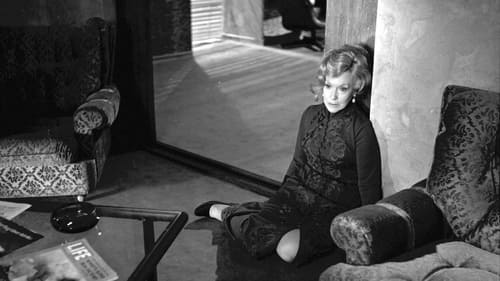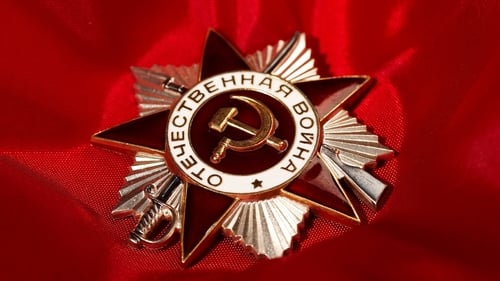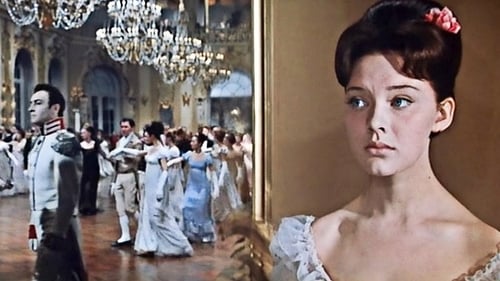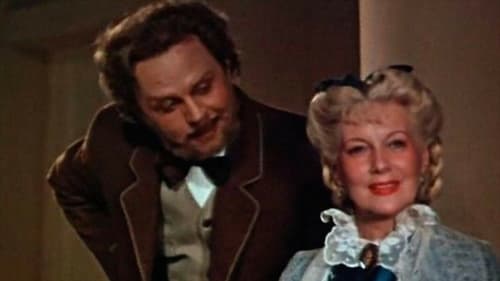
Tropilov
Based on the play by Oleg Perekalin “I Demand a Court.”
The organizers of constant fraud and theft in the suburban village of Kantirovka are Metel and brigadier Sanin, members of a gangster group at the regional level. In order to somehow attract the attention of the public, the worker, known for his integrity and partial attitude to embezzlement, arranges a traffic jam on the roadway. Investigator Streltsova thoughtfully and leisurely undertakes to investigate the causes of hooliganism of the worker and does not yet know who she will have to face in this, at first glance, harmless matter...

(voice)

A drama about a complicated life of a director in a small provincial theater.

Gorokhov
A 1984 Russian film.

A provincial Soviet town. Factory worker Victor Belov is beaten up by two teenagers in the park. One of them, Vladimir Belikov, goes to a correction labor settlement for two years, the other is put on probation. Belov goes on with his life and work. Life is simple and unambiguous: the factory, the wife, regular factory sports competitions. But the memories of the trial keep coming back. Everything was not done as properly as it had seemed then. He wants to change the fate of the accused, goes to the labor camp, obtains the right to visit him there and advocates his early release…

Kolesnitsyn
Based on the play of the same name by Leonid Zorin.
Gordei Kabachkov, a professional con man, decided to pursue a career in science and was very successful. Having settled in a certain Institute of Ancient Culture, he easily wraps his finger around the numerous "kind men" - members of the academic council - and defends his thesis.
Using his "talents" and the kindness of the staff of the Institute of Ancient Culture, Kabachkov makes a rapid take-off on the career ladder...

Arthur Opendorf
Soviet intelligence spouses — Lyudmila ("Lyre") and Fyodor ("Starling") Grekov at the beginning of the Great Patriotic War are tasked with settling in Germany. Personnel intelligence officers with vast experience are successfully introduced into German society and begin to work actively. At the end of the war, during the bombing of Berlin, fate separates them, but then they will meet in the new Germany and continue their work.

Vladimir Namestnikov

driver
The main character of the film is an ordinary chauffeur Pavel, whose life is not very successful, despite the fact that he is a very kind and fair person. Finally, fate smiles at Pavel, he meets true love, but more and more tests fall to his lot, as if testing a simple guy for strength.

The "Fiery Arc" tells of a grandiose battle on the Kursk Bulge in the summer of 1943. Here was the largest tank battle in the history of World War II. Along with the personal fate of the heroes, the film shows battle scenes, the activities of headquarters and intelligence, those who worked at the front and in the rear.

Сергей Сергеевич

Nesvitsky (uncredited)
A seven-hour epic adaptation of the novel by Leo Tolstoy. The love story of young Countess Natasha Rostova and Count Pierre Bezukhov is interwoven with the Great Patriotic War of 1812 against Napoleon's invading army.

Nesvitsky (uncredited)
The first film of a four-part adaptation of Leo Tolstoy’s 1869 novel. In St. Petersburg of 1805, Pierre Bezukhov, the illegitimate son of a rich nobleman, is introduced to high society. His friend, Prince Andrei Bolkonsky, joins the Imperial Russian Army as aide-de-camp of General Mikhail Kutuzov in the War of the Third Coalition against Napoleon.

A female poet and author faces the harsh realities of a besieged Leningrad. Based on Olga Berggolts' memoir of the same name.

Ivan Vasilyevich's interlocutor
Ivan Vasilyevich is in love with Varenka and is admired by her father, Colonel. But the transformation of a tender loving father from a good-natured colonel into a cruel and ruthless tormentor shocked Ivan so much that his feelings for Varenka quickly cooled.

landlord Belokurov
A famous painter lives in idleness in the estate of the landlord Belokurov. Once he meets a family of Volchaninov's living in the neighborhood, in which there are two daughters: the eldest (Lydia), a serious and strict girl with convictions, who tries to help ordinary people and doesn't like the artist very much for his idleness, and the youngest (Zhenya or Misyus), which soon takes a great interest in the artist. The painter also falls in love with Zhenya, but Lydia destroys their happiness ...

Zolotarev's son
Soviet film.

Ivanov, acoustic
The action takes place during the Second World War in the battle zone over the Black Sea coast. Soviet sailors track down an enemy submarine. Meanwhile, the commander of the Sea Hunter, along with one of the sailors, is not returning from intelligence. Young patriots Katya and Lida report to the boat about the signal of unknown friends who noticed a submarine. Thanks to this, Soviet sailors drown an enemy boat, and the brave reconnaissance Katya, who knows the mountain paths of the coast well, discovers a Sea Hunter commander and a seriously wounded sailor in one of the caves ..

Kuzma Larionovich
Sadko is based on an opera by Nikolai Rimsky-Korsakov, which was based on a Russian epic tale of the same name. In the old Russian city of Novgorod, the merchants are feasting in a gorgeous palace and Sadko is bragging that he can bring to their land a sweet-voiced bird of happiness. They laugh at him, but he is offered help by the Ocean King's daughter, who is mesmerized by Sadko's singing and is in love with him. The hero is destined to visit many lands in his search of the bird. First shown in the USA in 1953 with English subtitles. This entry is for 1962 English-dub by Roger Corman's Filmgroup, which runs about 8 minutes shorter (removes much of the music) than the Russian original (see, Sadko, 1953)

Alexander Borodin
Saint Petersburg, 1858. A group of composers known as The Five meet at Balakirev's. Young Modest Mussorgsky, both a civil servant and a musician, has become a fixture there. He tells about the first opera he plans to compose. Then he goes to the country where he discovers the lowly conditions of the peasants and the bloody conflicts with the rich land owners. He works on Gogol's 'The Marriage', trying to render into music the natural accents of the play's naturalistic dialogue. But his efforts do not pan out. On the other hand, he starts writing his opera on the story of Boris Godunov. The Marinsky Theatre refuses to stage the work. The Five, and Mussorgsky among them, are libeled and the group starts disintegrating. When 'Boris Godunov' is finally performed in 1874, it is a popular success.













